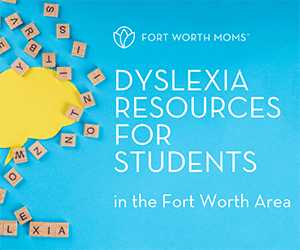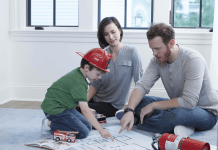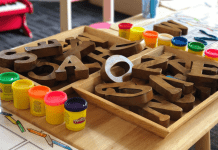Disclaimer :: This post contains sponsored content written by Montessori School of Fort Worth.
The Educate Debate is an editorial series presented to you by Fort Worth Moms and our sponsors Great Hearts Arlington, Montessori School of Fort Worth, and Uplift Education. To read all the articles included in this series, please click HERE.
Born and raised in Fort Worth, Texas, I stayed close to my roots for college. I attended Texas Wesleyan University to major in education. It was here that I first learned about the Montessori approach to education and was intrigued by how it engages multiple senses for learning.
Because I had not seen Montessori in action, my professor suggested a visit to Montessori Children’s House, which served children ages 18 months to six years. During this visit, I saw young children actively problem solving and independently learning. I knew then that Montessori was unlike any other educational approach and that it is uniquely suited for laying the foundation for a successful and fulfilling life. This visit set me on a life-long career as a Montessori educator and eventually assuming the role as head of school.
My passion for early childhood education and the benefits of the Montessori method led to the expansion of Montessori Children’s House, which is now known as the Montessori School of Fort Worth, to serve children ages 18 months to 14 years.
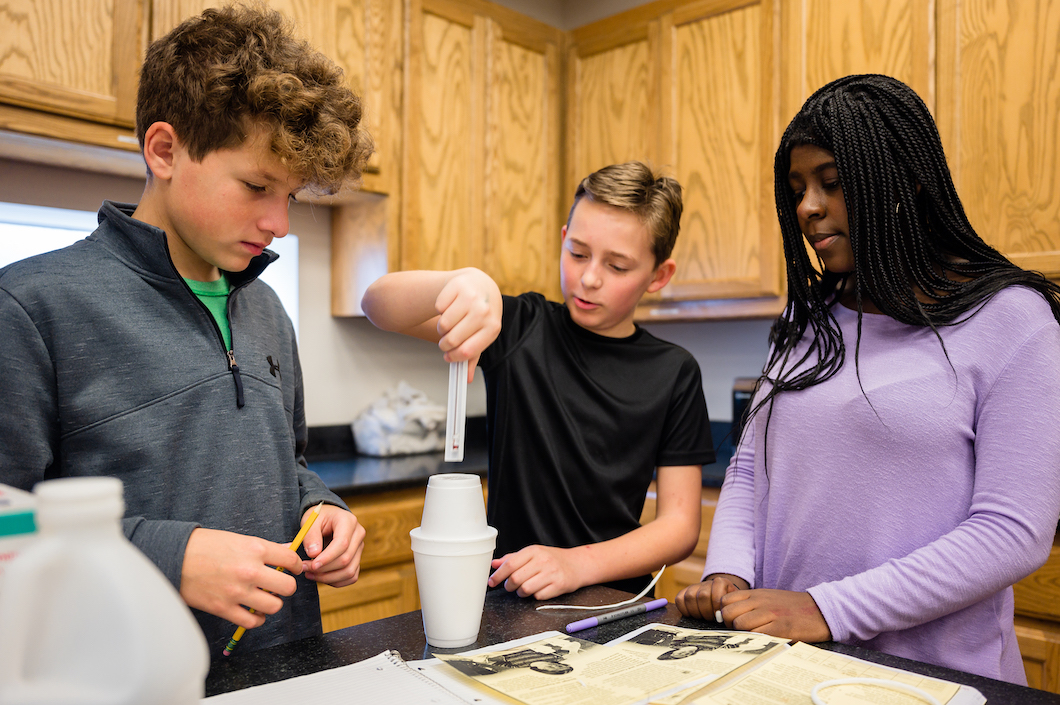 The Difference
The Difference
To this day, I can still remember the first things I noticed when I stepped in the classroom. It was how engaged the students were in learning and how everything was just the right size for children. It truly was a “children’s house,” designed and curated for their size and interests. Immediately, hallmarks of Montessori were evident, like shelves that lined the room with activities that were inviting to touch and explore and make abstract concepts — like math and language — more concrete. The classroom had a busy hum to it and a joyfulness to the learning taking place.
In the language area, I observed a four year old carefully tracing sandpaper letters and softly saying the sound that each letter represents. In close proximity was an older child reading a book with simple text about animals and where they live. She then found the accompanying map and miniature emperor penguin among a small basket containing the animals from the book, and placed the emperor penguin on the continent of Antarctica.

This self-constructive learning was present throughout the classroom. Two children were counting beads together and matching the quantity of each string of beads on wooden numeral cards, making a game of their work. While some students were working puzzles, arranging flowers in a vase, or honing observation skills by matching colors of varying gradations from darkest to lightest, another child was independently mopping up a spill and, once done, returned the child-sized mop to its place.
I watched with wonder that all these children were working peacefully and in harmony with the other students in the class. Then and there I decided this would be where my own children would go to school whenever I was blessed with children.
The Why
As an educator, I wanted them to work at their own pace and master each concept. As a mother, I wanted them to have a joyful experience at school and learn in a cooperative environment.
That dream did come true, and I still believe it was the best decision my husband and I ever made about how to raise our two children. They both started Montessori learning in the toddler program and stayed through the sixth grade, which was as far as the school went at that time. Now, they are mid-30 adults with established careers and families, and concur that this active learning and community style approach played a critical role in shaping them into adults who think for themselves and are capable, competent learners and problem solvers.
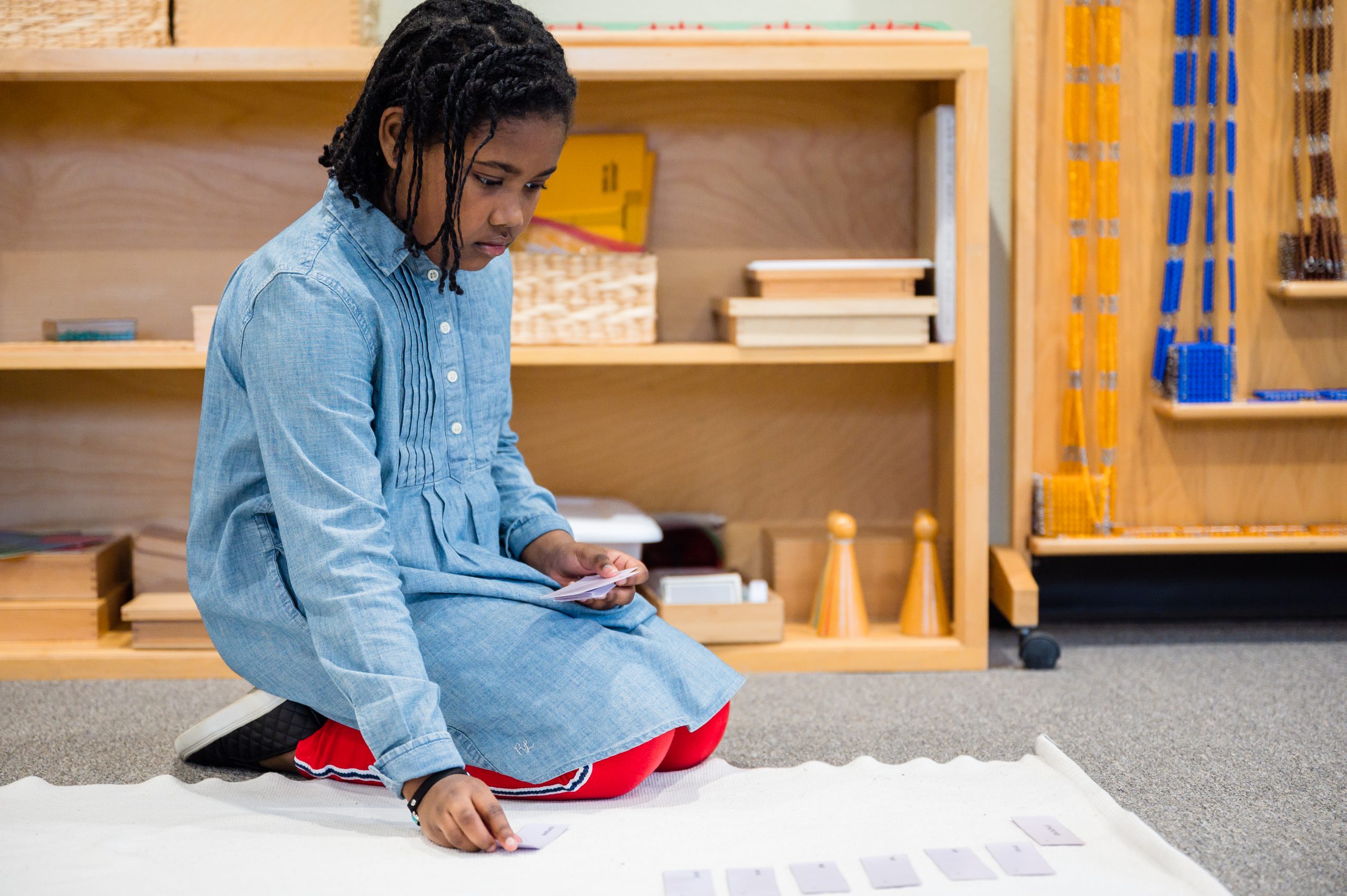 Because the Montessori community is cooperative and respectful, this atmosphere helped them practice open communication with others, understand that there are multiple ideas and perspectives to consider, and that science is evolving and dynamic. There is always more to learn, new goals to strive for, and we are in a constant state of growing.
Because the Montessori community is cooperative and respectful, this atmosphere helped them practice open communication with others, understand that there are multiple ideas and perspectives to consider, and that science is evolving and dynamic. There is always more to learn, new goals to strive for, and we are in a constant state of growing.
The Montessori experience is also molded by a community of dedicated teachers who are committed to serving the whole child, establishing long term relationships with the children they teach and their families, and serving as role models. As an educator, I have also consistently felt supported and encouraged as a life-long learner and enjoyed the professional camaraderie of Montessori teachers locally and globally. Especially encouraging to the Montessori community is the recent research that supports the effectiveness of the Montessori approach in developing academic and social skills.
My life-long Montessori journey started with a visit. I invite you to discover firsthand how the Montessori approach accommodates various learning styles, promotes active seekers of knowledge, and provides a peaceful learning environment. Nothing takes the place of stepping into the Montessori environment and observing for yourself if it is the right fit for your family.
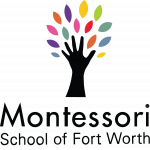 The Montessori School of Fort Worth has educated children using the classical Montessori method since 1968. It believes that learning occurs in an inquisitive, cooperative, and nurturing atmosphere; that learning takes place through the senses by manipulating materials and through interaction with others. Montessori School of Fort Worth is a student-centered environment where respect is projected at the core of our mission. Great care is taken to foster the individuality of each child. Follow Montessori School of Fort Worth on Facebook and Instagram.
The Montessori School of Fort Worth has educated children using the classical Montessori method since 1968. It believes that learning occurs in an inquisitive, cooperative, and nurturing atmosphere; that learning takes place through the senses by manipulating materials and through interaction with others. Montessori School of Fort Worth is a student-centered environment where respect is projected at the core of our mission. Great care is taken to foster the individuality of each child. Follow Montessori School of Fort Worth on Facebook and Instagram.
 Amy Henderson is the head of school for Montessori School of Fort Worth (MSFW), a position she has held since 2003 as the immediate successor to Joy Sheffield, the founding head of school. She previously served as the head of the elementary program starting in 1997 and has been a teacher at MSFW since 1984.
Amy Henderson is the head of school for Montessori School of Fort Worth (MSFW), a position she has held since 2003 as the immediate successor to Joy Sheffield, the founding head of school. She previously served as the head of the elementary program starting in 1997 and has been a teacher at MSFW since 1984.
Amy holds a bachelor’s degree in education from Texas Wesleyan University, a master’s degree in education from Texas Christian University, an American Montessori Society (AMS) Teaching Credential for ages six to 12, and an AMS Administrator’s Credential from the Houston Montessori Center. Currently, she is a faculty member of the Houston Montessori Center and engages in field consulting, mentoring, and presenting to teacher education centers both nationally and internationally. Amy is an active member of the AMS. She served on the AMS board of directors for eight years, first as the vice-president for professional development and then as president. Currently, Amy serves on various committees and supports Montessori professional development opportunities through presentations and writing. As an educator, Amy strongly believes in learning communities and is known for her own quest of knowledge, observation skills, and leadership qualities.
Amy enjoys family time with her grown children (MSFW alumni) and two grandchildren (MSFW students), traveling, reading, cooking, and outdoor activities.




